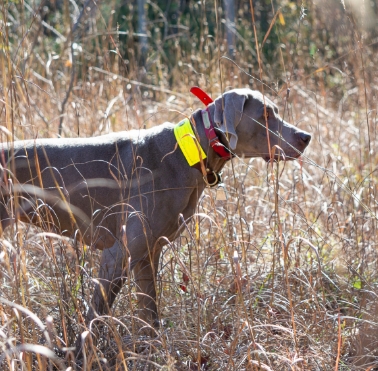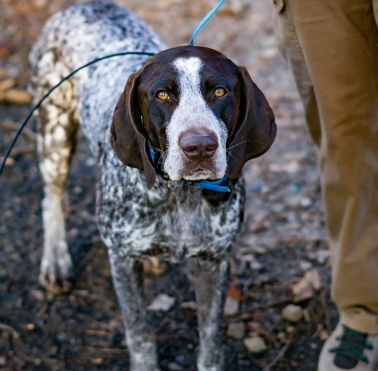Performance Dogs
Bird Dogs
Bird dogs, also known as gun dogs, are breeds specifically trained for hunting and retrieving game birds. These dogs often have unique health considerations due to their active lifestyle and exposure to various environmental elements.
Here are some key aspects of veterinary care for bird dogs:
Preventative Care
Regular veterinary checkups are crucial for bird dogs. These checkups should include vaccinations, parasite control, dental care, and an overall health assessment. Your vet can tailor preventive care based on the specific needs of your bird dog.
Vaccinations
Ensure your bird dog is up-to-date on vaccinations, including those that protect against common diseases in your region. Depending on the dog’s lifestyle and potential exposure to wildlife, your vet may recommend additional vaccines.
Parasite Control
Given the outdoor nature of bird dogs, they are susceptible to various parasites such as fleas, ticks, and intestinal worms. Consult with your vet to establish a comprehensive parasite control plan, including regular use of preventive medications.
Nutrition
Proper nutrition is vital for the health and performance of bird dogs. Consider a well-balanced diet that meets their energy needs. Your vet can provide guidance on the appropriate type and amount of food based on the dog’s age, size, and activity level.
Weight Management
Maintaining a healthy weight is crucial for bird dogs to support their stamina and prevent joint issues. Your vet can help determine the ideal weight for your dog and recommend a suitable diet and exercise plan.
Exercise & Conditioning
Bird dogs are active breeds that require regular exercise. Engage in activities that mimic hunting scenarios, such as retrieving and scent work. Gradually increase the intensity and duration of exercise to build endurance, always considering the dog’s age and health status.
Orthopedic Health
Some bird dog breeds are prone to orthopedic issues, such as hip dysplasia. Regular veterinary checkups can help monitor and manage these conditions. Your vet may recommend joint supplements or specific exercises to support orthopedic health.
Ear Care
Bird dogs, especially those retrieving game from water, may be prone to ear infections. Keep their ears clean and dry, and consult with your vet if you notice signs of infection or discomfort.
Dental Health
Good dental hygiene is essential for bird dogs. Regularly brush their teeth, provide dental chews, and schedule professional dental cleanings as recommended by your vet.
Environmental
Be aware of potential environmental hazards, such as toxic plants, pesticides, and other substances that may be encountered during hunting. Your vet can provide guidance on avoiding and managing these risks.
Always communicate openly with your veterinarian about your bird dog’s activities, health concerns, and any behavioral changes. Regular veterinary care tailored to the specific needs of your bird dog will contribute to a healthy and active lifestyle.
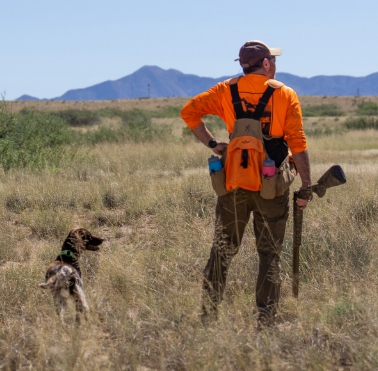
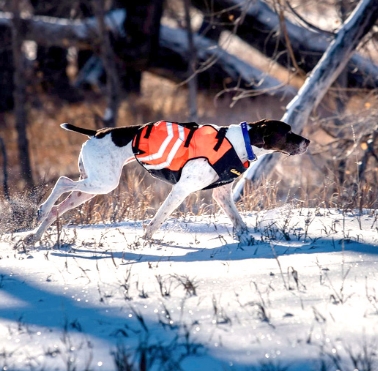
Trial/Hunt Test Dogs
Trial and hunt test dogs, often used in various dog sports and competitions, have unique needs due to the physical and mental demands of their training and performance. Whether involved in obedience trials, agility competitions, or other dog sports, proper veterinary care is essential to keep them healthy and in optimal condition.
Here are some considerations for veterinarian care for trial/test dogs:
Preventative Care
Regular veterinary checkups are crucial for trial dogs. These checkups should include vaccinations, parasite control, dental care, and an overall health assessment. Your vet can tailor preventive care based on the specific needs of your trial dog.
Vaccinations
Ensure your trial dog is up-to-date on vaccinations, taking into consideration the potential exposure to other dogs in trial settings. Discuss any additional vaccines recommended for dogs involved in specific sports or competitions.
Physical Fitness
Trial dogs often require a high level of physical fitness. Work closely with your vet to develop a fitness plan that includes regular exercise, strength training, and conditioning exercises specific to the demands of the particular dog sport.
Joint Health
Dogs involved in agility and other high-impact sports are at risk of joint injuries. Regular veterinary checkups can help monitor joint health, and your vet may recommend joint supplements or specific exercises to support mobility.
Muscle Health
Trial dogs need strong and healthy muscles to perform well. Ensure that their diet supports muscle development and maintenance. Consult with your vet for dietary recommendations and, if necessary, consider supplements to support muscle health.
Nutrition
Proper nutrition is crucial for the energy and stamina required in dog sports. Consider a well-balanced diet that meets the specific needs of your trial dog. Your vet can provide guidance on the appropriate type and amount of food based on your dog’s activity level.
Weight Management
Maintaining a healthy weight is essential for performance and overall well-being. Excess weight can strain joints and hinder agility. Your vet can help determine the ideal weight for your trial dog and recommend a suitable diet and exercise plan.
Injury Prevention & Rehab
Work with your vet to establish a proactive approach to injury prevention. If your trial dog does sustain an injury, follow your vet’s recommendations for rehabilitation and recovery to ensure a safe return to activities.
Dental Health
Good dental hygiene is vital for overall health. Regularly brush your dog’s teeth, provide dental chews, and schedule professional dental cleanings as recommended by your vet.
Behavioral Health
The mental well-being of trial dogs is as important as their physical health. Enrich their environment with mental stimulation and provide positive reinforcement during training and competition. If you notice any behavioral changes, discuss them with your vet to rule out any underlying health issues.
Environmental
Be aware of potential environmental hazards at trial locations, such as uneven surfaces, extreme weather conditions, or unfamiliar surroundings. Take steps to minimize stress and ensure the safety of your trial dog.
Always communicate openly with your veterinarian about your trial dog’s activities, health concerns, and any changes in performance or behavior. Regular veterinary care, tailored to the specific needs of your trial dog, will contribute to a healthy and successful career in dog sports.
